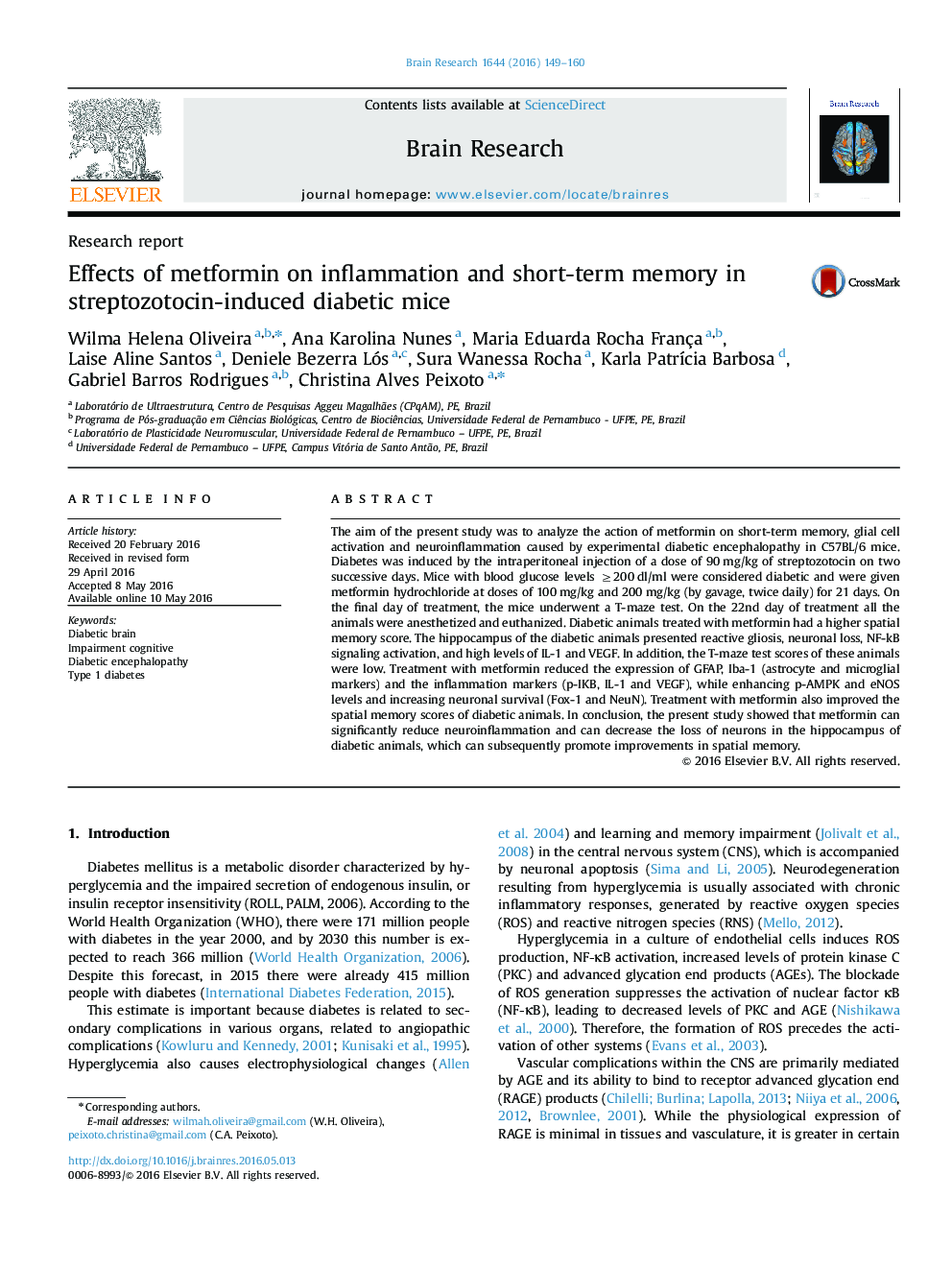| Article ID | Journal | Published Year | Pages | File Type |
|---|---|---|---|---|
| 6262442 | Brain Research | 2016 | 12 Pages |
â¢Streptozotocin-induced diabetic mice exhibited memory impairment.â¢Evaluation of the AMPK agonist on healthy and diabetic brain.â¢Metformin ameliorated neuron survival in the dentate gyrus of diabetic mice.â¢This drug reduced the glial activation in the dentate gyrus area of hippocampus.
The aim of the present study was to analyze the action of metformin on short-term memory, glial cell activation and neuroinflammation caused by experimental diabetic encephalopathy in C57BL/6 mice. Diabetes was induced by the intraperitoneal injection of a dose of 90 mg/kg of streptozotocin on two successive days. Mice with blood glucose levels â¥200 dl/ml were considered diabetic and were given metformin hydrochloride at doses of 100 mg/kg and 200 mg/kg (by gavage, twice daily) for 21 days. On the final day of treatment, the mice underwent a T-maze test. On the 22nd day of treatment all the animals were anesthetized and euthanized. Diabetic animals treated with metformin had a higher spatial memory score. The hippocampus of the diabetic animals presented reactive gliosis, neuronal loss, NF-kB signaling activation, and high levels of IL-1 and VEGF. In addition, the T-maze test scores of these animals were low. Treatment with metformin reduced the expression of GFAP, Iba-1 (astrocyte and microglial markers) and the inflammation markers (p-IKB, IL-1 and VEGF), while enhancing p-AMPK and eNOS levels and increasing neuronal survival (Fox-1 and NeuN). Treatment with metformin also improved the spatial memory scores of diabetic animals. In conclusion, the present study showed that metformin can significantly reduce neuroinflammation and can decrease the loss of neurons in the hippocampus of diabetic animals, which can subsequently promote improvements in spatial memory.
